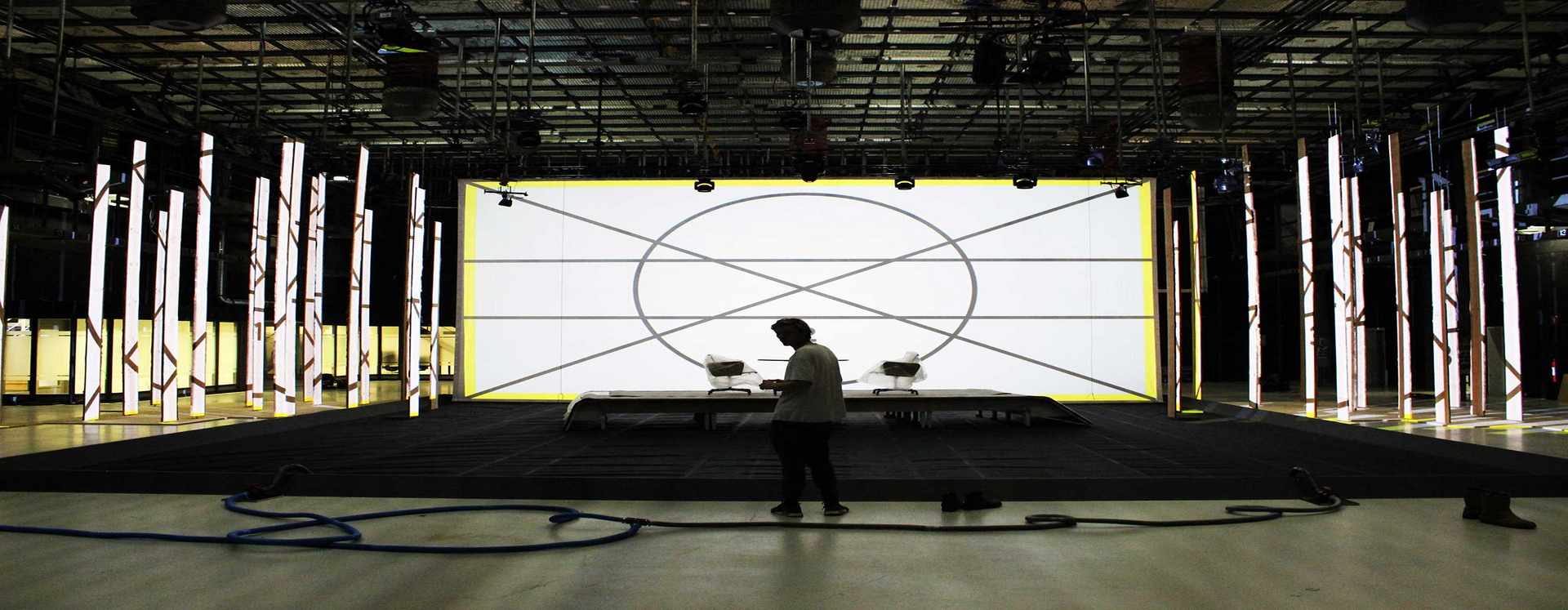Specialisation Sound Design
You as sound designer must be capable of translating a desire, idea or feeling into a concept at a technical and artistic level. For example, if a director or composer wants a scene to sound ‘closed’, it’s up to you to find out what he/she means and how to realize it. The isolation of a prison, for instance, is very different to a character who feels cut off. How does that sound? What equipment do you need to create that sound? As sound designer you look for or create concrete sounds for a soundscape. The word soundscape is derived from ‘landscape’. Imagine: you look out over a landscape; what sounds are audible? What do characters hear in such a landscape? These are questions that will help you create a soundscape. In a stage production sound effects are important. What sound does a dying mammoth make, or the chimes of a particular doorbell? As sound designer you are intensely involved with the creative process and make sure that the audience experiences what the director or composer envisaged.
Head teacher: Marc Schrader
Second year
How does sound and music function? How do you work with actors and transmitters? In which way does a location and an audience influence audio material? How do you deal with non-theatrical spaces? You will learn more about these questions and many other aspects of sound engineering, including how to work with digital mixers, software programmes like Ableton and Qlab and different microphones. You will immerse yourself in sound design, both the technical and creative side and also sound dramaturgy.
Towards the end of the second study year, you will choose an internship for the third year. Before doing so, you must formulate your personal learning goals. During the second year you should also consider who you want to act as your external mentor. He/she will act as a contact for monitoring your development during the last two years of your study.
Projects during your second year
Quirine Racké and Helena Muskens are conceptual artists and film makers. Students of the study programme Amsterdam Drama School and Contemporary Music Theatre (ATKA) work together with lighting and sound specialists on an individual creative process.
The singer-songwriter project is organised together with students from the study programme Amsterdam Drama and Contemporary Music Theatre (ATKA). On the basis of a song they have written, you will collaborate to realise a production.
At the end of the year, together with students of the study programmes Theatre Directing 2 and Scenography 2, you will make a production based on a scientific phenomenon.
Third year
Your research internship is central to the first semester of your third study year. You will undertake research in the work field with a theatre ensemble, at an event or festival or even with a business organization. On the basis of your personal learning goals, you will use this time to explore how a sound designer works. The third year is concluded with a graduation project in or outside the school or even abroad. While working on these different projects you will maintain contact with your external mentor. In the second semester, after completing the project ‘Mythological Melancholic Manifesto’, you are free to plan your own study trajectory. For example, by starting work on a graduation project, creating work of your own or following lessons at a university or other HBO study programme (internally or externally) or another internship. At the end of the year you must submit a personal graduation plan for your fourth year. A final interview with the head of studies will decide if your plan is approved.
Projects during your third year
After your internship, you work together with students from Theatre directing 3 and Scenography 3 on the Mythological Melancholic Manifesto. Inspired by this theme, students work together on an equal basis to realise a production or installation in the large auditorium of the academy.
Fourth year
During the fourth year that comprises nine months, you will work on your graduation projects. A condition is that at least one graduation project must be realized during this time at school with students from other study programmes who are also completing their final year. A research project in the form of an essay or thesis (circa 6 weeks) is also a possibility as well as an internship.
